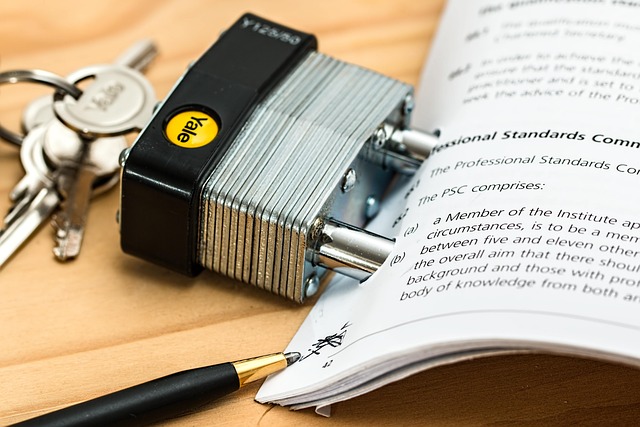When it comes to translating UK Intellectual Property Documents, precision and expertise are indispensable due to the legal implications of such documents. Specialized translation services that focus on IP documentation and have a deep understanding of UK law ensure that patents, trademarks, design rights, and copyrights are accurately translated across different languages, preserving their original intent and maintaining their enforceability in international jurisdictions. These services employ native-speaking translators with specialized knowledge to handle the complexities of legal terminology and cultural nuances. For added assurance, these translations can be certified or notarized, and it is advisable for IP documents to undergo a final review by a UK-qualified lawyer specializing in intellectual property law to confirm that all terms and conditions comply with UK legal standards. This meticulous approach is crucial for protecting the rights and interests of IP holders on a global scale.
navigating the intricacies of intellectual property (IP) law is a complex task, further compounded by language barriers. As businesses expand globally, ensuring compliance with translated IP documents for legal use in the UK becomes paramount. This article delves into the critical aspects of translating IP documents accurately and legally, outlining the UK’s specific documentation requirements, the challenges faced, and the best practices to adopt. From understanding the pivotal role of professional translation services in maintaining compliance to identifying reliable providers who can navigate cultural nuances without falling prey to mistranslation pitfalls, this guide offers essential insights for safeguarding your IP rights. Key considerations include the legal binding nature of translations and the importance of adhering to UK standards to avoid legal complications.
- Understanding the Importance of Accurate Translation for IP Documents
- Overview of UK Intellectual Property Documentation Requirements
- Key Challenges in Translating Intellectual Property Documents
- The Role of Professional Translation Services in IP Compliance
- Identifying Reliable Translation Providers for Legal Use
- Best Practices for Translating Patents and Trademarks in the UK Context
- Navigating Cultural Nuances in Intellectual Property Translations
- The Impact of Mistranslation on IP Rights and Legal Enforcement
- Steps to Ensure Your Translated IP Documents Are Legally Binding in the UK
Understanding the Importance of Accurate Translation for IP Documents

In the context of safeguarding legal integrity and operational efficiency, the precise translation of UK Intellectual Property (IP) documents assumes paramount importance. The stakes are particularly high when it comes to IP documentation, as inaccuracies or omissions can lead to misinterpretations, potential legal disputes, and financial losses that could have been avoided. To mitigate such risks, specialized UK Intellectual Property Documents translation services offer a critical line of defense. These services ensure that the nuances and complexities inherent in IP law are accurately conveyed across different languages, thereby upholding the enforceability and protection of intellectual property rights on an international scale. This is not merely a matter of linguistic dexterity but a commitment to legal fidelity, where the precise wording can often dictate the outcome of intellectual property disputes.
The translation of IP documents requires not only a deep understanding of legal terminology but also familiarity with the cultural and regional nuances that can significantly alter the meaning of content. UK Intellectual Property Documents translation services leverage the expertise of professional translators who are often bilingual and well-versed in IP law, ensuring that each document is handled with the utmost accuracy and care. This meticulous approach is crucial for maintaining the validity and legal recognition of patents, trademarks, copyrights, and other IP assets across borders, thereby securing a company’s competitive edge and compliance within the global marketplace.
Overview of UK Intellectual Property Documentation Requirements

When navigating the realm of intellectual property (IP) in the United Kingdom, it is imperative to adhere strictly to the documentation requirements set forth by law. UK IP documents must be meticulously prepared and translated with precision to ensure legal validity. The UK Intellectual Property Office (IPO) mandates that all IP documents, including patents, trademarks, and design applications, must be presented in clear, understandable English. For non-native speakers or entities, this necessitates the engagement of professional UK Intellectual Property Documents translation services to bridge linguistic gaps. These translations are not mere paraphrases; they must accurately reflect the original content’s intent and technical specifications. This is crucial because any discrepancies can lead to complications during legal proceedings, potentially jeopardizing the protection of the intellectual property in question. Therefore, utilizing specialized UK Intellectual Property Documents translation services is a prudent step to safeguard one’s IP rights within the jurisdiction of the UK. These services not only ensure compliance with legal standards but also provide confidence that the translated documents will be recognized and respected by all relevant parties.
Key Challenges in Translating Intellectual Property Documents

Navigating the complexities of translating intellectual property (IP) documents, particularly within the UK context, presents unique challenges that extend beyond mere linguistic equivalence. The stakes are high due to the legal implications and enforcement of IP rights across different jurisdictions. One key challenge is ensuring semantic accuracy; terms that carry specific legal weight in English may lack equivalent protections or interpretations in other languages. This discrepancy can significantly impact the enforceability of IP rights when translated. Additionally, translators must be adept at understanding and conveying the nuances of IP law, which often involves intricate details and precise terminology. UK Intellectual Property Documents translation services must therefore employ experts with a deep knowledge of both language and IP law to provide accurate translations that stand up in legal settings.
Another significant hurdle is maintaining consistency across translated documents, particularly when dealing with a series of related files or when multiple translators are involved. Inconsistencies can lead to ambiguity, which may be exploited in legal disputes. Furthermore, the translation process must account for cultural and regional differences that could influence the interpretation of IP terms. For instance, what is considered fair use in one country might be seen as infringement in another. UK Intellectual Property Documents translation services must be vigilant in their approach, utilizing up-to-date legal glossaries and working closely with legal experts to ensure that every translated document aligns with the original’s intent and is compliant with applicable laws within the target jurisdiction. This diligence is paramount for the protection of IP assets in an increasingly globalized marketplace.
The Role of Professional Translation Services in IP Compliance

In the realm of intellectual property (IP), precision and accuracy are paramount, especially when it comes to legal documents. For entities operating within the UK, the translation of IP documents presents unique challenges that necessitate professional expertise. UK Intellectual Property Documents translation services play a pivotal role in ensuring that these critical texts are accurately conveyed across languages. These specialized services not only bridge linguistic gaps but also navigate the complexities inherent in legal terminology, thereby upholding the integrity and enforceability of IP rights. Professionals in this domain employ their expertise to translate with fidelity to the original content, ensuring that every nuance, clause, and condition is accurately rendered in the target language. This meticulous approach is crucial for maintaining compliance with legal standards and for protecting the intellectual assets of businesses and inventors. By leveraging the capabilities of UK Intellectual Property Documents translation services, organizations can confidently assert their IP rights across international borders, secure in the knowledge that their translated documents are both legally sound and linguistically precise.
The translation of IP documents is not merely a matter of language transfer but involves a sophisticated understanding of both legal frameworks and industry-specific jargon. UK Intellectual Property Documents translation services are staffed by translators who are often specialized in legal translation, ensuring that they possess the necessary knowledge to handle sensitive and complex information. This level of expertise is indispensable for accurately rendering the content of patents, trademarks, copyrights, and other IP-related materials. The consequences of mistranslation in this context can be severe, potentially leading to legal disputes or the erosion of IP rights. By opting for professional UK Intellectual Property Documents translation services, companies and law firms can mitigate these risks, guaranteeing that their IP documentation is compliant with legal requirements and effectively communicates their intended protections on an international scale.
Identifying Reliable Translation Providers for Legal Use

When navigating the complexities of translating intellectual property documents for legal use, particularly in the UK, it is imperative to engage with translation providers that possess a proven track record in the field. Reliable UK Intellectual Property Documents translation services are not merely adept at converting text from one language to another; they specialize in ensuring that the translated content adheres to legal standards and regulatory requirements. These providers employ expert linguists who are often well-versed not only in multiple languages but also in the nuances of intellectual property law, thus minimizing the risk of misinterpretation or legal oversight. When selecting a translation service for such critical documents, consider their accreditations, client testimonials, and their approach to handling sensitive information with confidentiality and precision. Opting for services that offer certifications like the ISO 17100 can provide additional assurance of quality and adherence to industry best practices. This due diligence is crucial in upholding the integrity and enforceability of your intellectual property rights across different jurisdictions, ensuring that your legal documents are accurately and legally compliant in various languages.
Best Practices for Translating Patents and Trademarks in the UK Context

When translating patents and trademarks within the UK context, adherence to precise terminology is paramount due to the legal implications of intellectual property (IP) documentation. Utilizing specialized UK Intellectual Property Documents translation services ensures that the nuances of language are accurately captured, thereby maintaining the integrity and enforceability of the IP rights. These services employ expert linguists with a deep understanding of both the source and target languages, as well as the intricacies of legal language and IP law specific to the UK. It is imperative to engage translators who specialize in the field of IP; their expertise facilitates a precise translation that aligns with UK legislation and regulatory standards. This precision is crucial for the correct interpretation of claims, descriptions, and drawings within patents, as well as the distinctiveness requirements for trademarks. By leveraging professional UK Intellectual Property Documents translation services, companies can navigate the complexities of international IP protection with confidence, secure in the knowledge that their translated documents will stand up to legal scrutiny. Additionally, these services often provide certification and notarization options, which are critical for official use and acceptance by UKIPO or other relevant authorities.
Navigating Cultural Nuances in Intellectual Property Translations

navigating the intricacies of intellectual property law requires meticulous attention to detail, especially when translating UK intellectual property documents for use across different cultures. Translation services that specialize in this field must be adept at understanding and conveying the precise meanings of terms and conditions, which are often complex and technical. The challenge lies in preserving the legal intent and implications while adapting to cultural nuances that may alter the interpretation of these documents. For instance, what is considered a clear and binding agreement in one jurisdiction might be perceived differently in another due to variations in language and legal tradition. This is where experienced UK intellectual property documents translation services become indispensable, as they not only translate text but also interpret legal implications, ensuring that the translated documents maintain their original intent and are compliant with international standards. Their expertise ensures that nuances such as idiomatic expressions, legal jargon, and context-specific terminology are accurately represented, thereby facilitating the effective use of these documents in a global legal landscape.
The Impact of Mistranslation on IP Rights and Legal Enforcement

Accurate translations are paramount when it comes to intellectual property (IP) documentation, particularly in the context of legal enforcement. A single mistranslation can significantly undermine the integrity and enforceability of IP rights within the UK. This is because IP documents, which include patents, trademarks, design rights, and copyrights, are legally binding contracts that define the scope, ownership, and usage restrictions of inventions, brands, designs, and creative works. When these documents are translated inaccurately, they can lead to misinterpretations by courts and regulatory bodies, potentially invalidating patents or allowing for infringement under the guise of legal compliance. Therefore, it is crucial to engage with UK Intellectual Property Documents translation services that specialize in legal translations to ensure that the nuances and complexities inherent in IP law are accurately conveyed across languages. These specialized services employ expert linguists who are not only fluent but also well-versed in both the target language and the intricacies of IP law, thereby minimizing the risk of mistranslation and safeguarding the rights and interests of IP holders in a global marketplace.
Steps to Ensure Your Translated IP Documents Are Legally Binding in the UK

When translating intellectual property (IP) documents for use in the UK, it is imperative to ensure that the translated versions carry the same legal weight as their original counterparts. This requires a meticulous approach to preserve the accuracy and enforceability of the content across all languages involved. The first step involves selecting a professional translation service specialized in IP documents and with expertise in UK law. These services should employ native-speaking translators who are well-versed in both the source and target languages, as well as in the nuances of IP law within the UK jurisdiction. This is crucial to avoid any misunderstandings or legal loopholes that could arise from mistranslations or cultural misinterpretations.
Once the right translation service is engaged, the next critical step is to have the translations certified or notarized as required. In the UK, a certified translation is one that comes with a statement from the translator affirming the accuracy of their work and often includes a stamp or seal for added credibility. For certain legal purposes, further endorsement by a professional translator’s association or a legal professional might be necessary to confirm the document’s authenticity. Additionally, it is advisable to have these translations reviewed by a UK-qualified lawyer who specializes in IP law to ensure that all terms and conditions are accurately conveyed and legally binding under UK regulations. This comprehensive approach will help safeguard your IP rights when operating within or outside the UK’s jurisdiction.
In concluding, the meticulous translation of UK Intellectual Property (IP) documents is a pivotal task that demands precision and expertise. As this discourse has highlighted, professional translation services play an indispensable role in ensuring that IP documentation complies with legal standards within the UK. By adhering to best practices and navigating cultural nuances, businesses can safeguard their intellectual property rights effectively. It is imperative for organizations to engage with experienced translators who specialize in legal terminology to avoid the pitfalls of mistranslation that could undermine the enforceability of IP rights. By taking proactive steps to select reliable providers and understanding the specific requirements of UK IP documentation, companies can confidently assert their intellectual property, thereby protecting their innovative endeavors on an international stage.



